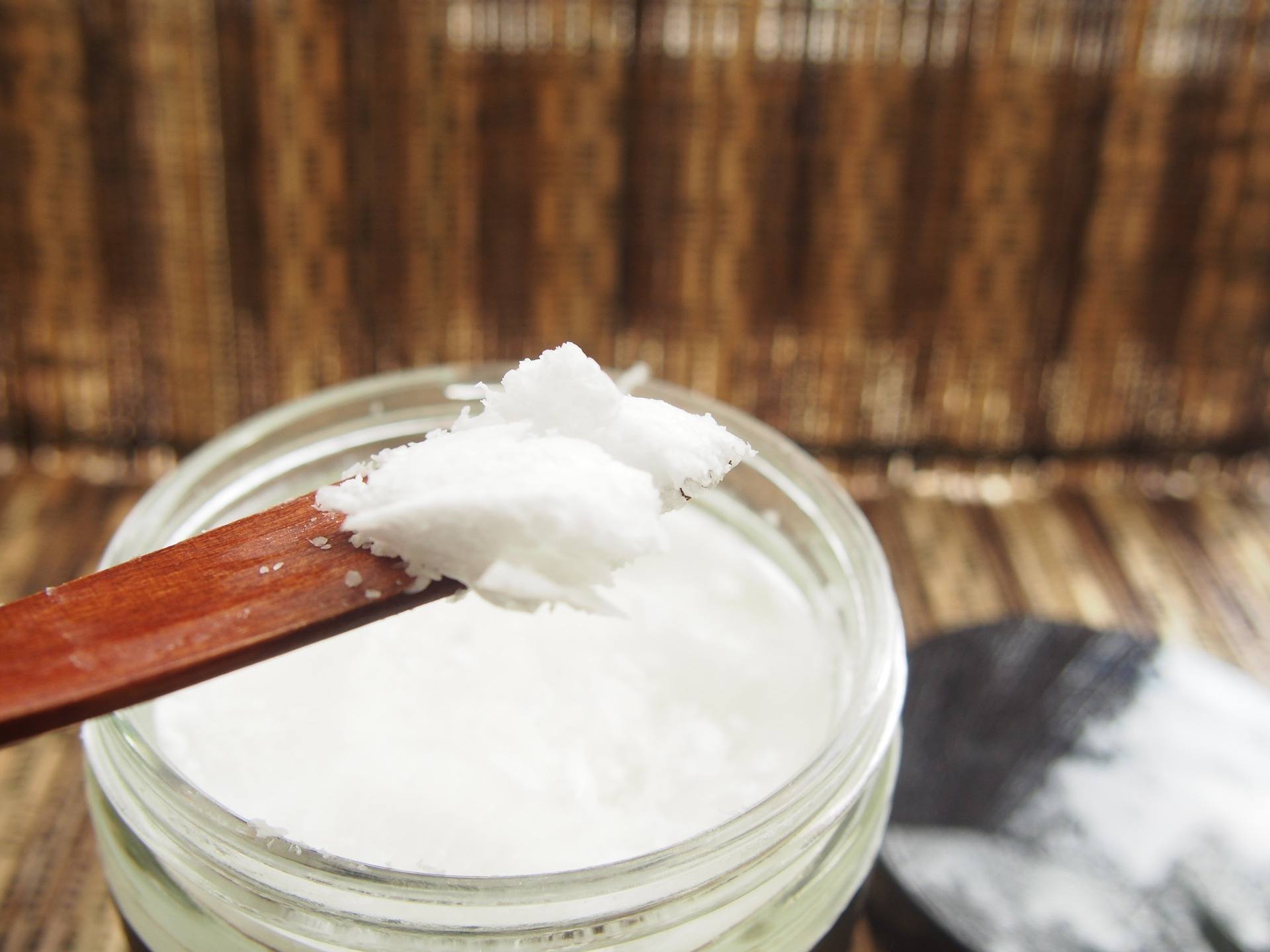Coconut oil may help curb appetite, support oral hygiene, possibly reduce seizure frequency, and offer other advantages. That said, coconut oil might not be ideal for cardiovascular health.
Coconut oil has become a widely used cooking fat.
It’s often promoted for various health perks, such as antimicrobial and antioxidant effects, better skin and oral health, and potential support for weight management.
Below are 10 research-backed health effects of coconut oil, along with key caveats to consider if you plan to add it to your diet.

1. May promote fat burning
Coconut oil is rich in medium-chain triglycerides (MCTs), a form of saturated fat.
Saturated fats are typically categorized into three groups, each exerting distinct effects in the body. These include:
- long-chain
- medium-chain
- short-chain
Researchers are investigating MCTs, including those present in coconut oil, for potential health benefits.
For example, a study found that MCT supplementation during a low-calorie ketogenic regimen substantially reduced body weight, BMI, and waist circumference.
Because about 65% of the fats in coconut oil are MCTs, it might produce effects similar to pure MCT oil.
However, there’s currently insufficient proof that consuming coconut oil on its own raises your resting calorie burn. Additional research is required to clarify MCTs’ role in weight loss.
Remember also that coconut oil is calorie-dense and can contribute to weight gain if consumed excessively.
SummarySome research indicates that consuming the MCTs found in coconut oil may boost calories burned. Still, it remains uncertain whether coconut oil itself has this effect.
2. May serve as a rapid energy source
The MCTs in coconut oil deliver a fast form of energy.
When you ingest long-chain triglycerides (LCTs), they’re packaged into chylomicrons and moved into the bloodstream via the lymphatic system. After exiting the lymphatics, chylomicrons are delivered to the liver and other tissues for storage or breakdown, so energy from LCTs becomes available more slowly.
By contrast, certain MCTs can be used immediately for fuel, in a manner similar to carbohydrates — the body’s preferred energy source.
Indeed, MCTs have long been included in sports nutrition products for athletes needing a quickly absorbable energy supply.
SummaryCoconut oil contains MCTs, which the body metabolizes differently than LCTs. MCTs provide a swift energy source that the body can access more rapidly than some other saturated fats.
3. May exhibit antimicrobial activity
Coconut oil shows antimicrobial potential largely because of its MCT profile — notably lauric acid.
Lauric acid is a fatty acid that comprises roughly one-third of coconut oil.
Evidence suggests it may act against disease-causing microbes, including:
- Staphylococcus aureus
- Streptococcus mutans
- Streptococcus pyogenes
- Escherichia coli
- Helicobacter pylori
Studies indicate lauric acid can function as a bacteriostatic agent, preventing bacterial replication without necessarily killing the organisms.
It may also act as a bactericidal agent against some pathogens and can inhibit growth of microorganisms harmful to plants.
SummaryLauric acid in coconut oil may possess antimicrobial effects against a variety of harmful microbes.
4. May reduce feelings of hunger
One notable trait of MCTs is their potential to suppress appetite and lower food intake.
This effect may relate to how the body metabolizes them. A portion of dietary MCTs is converted into ketone bodies.
Ketones may decrease appetite by acting on the brain’s signaling molecules or through other mechanisms.
Ketones are familiar in the context of ketogenic diets, which restrict carbs and often increase fat intake; under such diets, the body shifts to using ketones as fuel.
Although coconut oil is a concentrated natural source of MCTs, there’s no clear evidence that coconut oil alone curbs appetite more than other oils. In fact, one study reports that coconut oil is less satiating than pure MCT oil.
SummaryMCTs can help lower food intake by reducing hunger. Still, coconut oil itself does not necessarily produce the same appetite-suppressing effect.
5. May help lower seizure frequency
Ketogenic diets, very low in carbs and high in fats, have long been used to treat certain conditions, including drug-resistant epilepsy in children, and have been shown to reduce seizures.
Researchers think that reduced glucose availability for brain cells may partly explain the decline in seizure episodes seen with ketogenic diets.
However, evidence supporting ketogenic diets for adults with epilepsy is limited, so further study is necessary.
Eating fewer carbohydrates lowers blood glucose, while boosting fat intake raises ketone levels. The brain can utilize ketones as an alternative fuel to glucose.
Recent approaches have examined using MCTs with a more generous carbohydrate allowance to induce ketosis.
Research indicates MCTs in coconut oil are transported to the liver and converted into ketones.
SummaryMCTs in coconut oil can raise blood ketone levels, which may contribute to fewer seizures.
6. May support skin health
Coconut oil has many non-dietary uses. It’s commonly applied cosmetically to enhance the appearance and health of the skin.
Studies show coconut oil can increase moisture in dry skin. It may also improve skin function, helping to prevent excessive water loss and shielding against external threats like microbes, chemicals, and allergens.
One study found that applying 6–8 drops of virgin coconut oil to the hands and leaving it on overnight could effectively prevent dryness caused by frequent use of alcohol-based hand sanitizers.
It may also alleviate some symptoms of atopic dermatitis, a chronic inflammatory skin condition associated with impaired skin barrier function.
SummaryCoconut oil can help moisturize skin and strengthen the skin barrier.
7. May protect hair
Coconut oil can also guard against hair damage.
For example, one study concluded that because coconut oil penetrates hair strands deeply, it increases flexibility and fortifies hair to reduce breakage under tension.
Another study found that coconut oil nourishes hair and lessens breakage, contributing to stronger hair overall.
SummaryCoconut oil may help strengthen hair by enhancing flexibility and decreasing strand breakage.
8. May aid oral health
A study found that using coconut oil as a mouthwash — a practice called oil pulling — can improve oral hygiene affordably.
Oil pulling involves swishing coconut oil in the mouth like a mouthwash. It may significantly lower counts of harmful mouth bacteria, particularly S. mutans, compared with standard mouthwash.
This effect is likely due to the antibacterial actions of lauric acid.
Lauric acid in coconut oil can react with saliva to form a soap-like substance that helps prevent cavities, reduce plaque buildup, and decrease gum inflammation.
However, researchers caution that oil pulling is not a substitute for professional dental care, and additional research is necessary.
SummaryCoconut oil may be an inexpensive adjunct to oral care because of its lauric acid content.
For more on using coconut oil for oral hygiene, see oil pulling coconut oil.
9. May ease symptoms of Alzheimer’s disease
Alzheimer’s disease is the leading cause of dementia.
This condition impairs the brain’s ability to utilize glucose for energy. Some researchers propose that ketones can partially offset early signs of mild to moderate Alzheimer’s by supplying an alternative energy source for brain cells.
Accordingly, specific foods like coconut oil have been explored for their possible role in managing Alzheimer’s symptoms.
Nevertheless, larger human trials are needed to confirm any benefit.
SummaryBecause coconut oil is rich in MCTs that raise blood ketone levels, it might have potential to help with Alzheimer’s symptoms. More research is required.
10. A useful source of antioxidants
Coconut oil contains antioxidants that help neutralize damaging free radicals, potentially lowering the risk of certain chronic and degenerative diseases.
Key antioxidant types in the oil include:
- tocopherols
- tocotrienols
- phytosterols
- flavonoids
- polyphenols
These antioxidants may give coconut oil anti-inflammatory and protective properties.
One study also indicates a potential role for coconut oil, particularly lauric acid, in reducing secondary complications of diabetes.
SummaryCoconut oil provides antioxidants that may offer anti-inflammatory, anti-diabetic, and neuroprotective benefits.
Important heart health considerations
Recently, coconut oil has been promoted for heart health because some data suggest it can raise HDL (good) cholesterol while also affecting LDL (bad) cholesterol.
Yet, research on coconut oil’s impact on blood lipids is mixed.
One review found coconut oil may substantially increase LDL cholesterol — a factor that raises heart disease risk.
Variations in study designs may explain some conflicting findings. For instance, some trials compare coconut oil to unsaturated vegetable fats, while others compare it to saturated animal fats like butter.
Compared with vegetable oils, coconut oil tends to raise both LDL and total cholesterol to a greater extent, though the effect is smaller than that of butter.
An increase in HDL is often seen as beneficial, but evidence suggests that diet- or drug-induced HDL rises do not necessarily translate into lowered heart disease risk.
Thus, the LDL-raising effect may outweigh any HDL increase, leading organizations like the American Heart Association to advise against using coconut oil to improve heart health.
This doesn’t mean you must avoid coconut oil completely. Rather, limit intake to align with recommendations for saturated fat, which is less than 10% of daily calories.
SummaryEvidence about coconut oil and heart health is inconsistent. The AHA recommends against using it to lower heart disease risk. Limit saturated fat intake, including coconut oil, to under 10% of daily calories.
Common questions about coconut oil
Is a spoonful of coconut oil a day good for you?
Coconut oil has several potential benefits and can be part of a healthy diet. However, due to its high saturated fat content, moderation is important. Aim for no more than about 2 tablespoons per day.
Is coconut oil healthier than olive oil?
Olive oil is generally a healthier choice than coconut oil because it contains significantly less saturated fat and more beneficial nutrients.
Which is better, coconut or palm oil?
Palm oil is considered healthier than coconut oil in some respects because it contains roughly 50% saturated fat, compared with about 85% in coconut oil.
Takeaway
Coconut oil offers a range of potential health benefits when used in food or for topical applications.
Still, use it sparingly. Health experts recommend moderating coconut oil consumption to avoid raising your risk of heart disease.
























Leave a Reply
You must be logged in to post a comment.